Great Tang Idyll
CH 33
The next day, the autumn air was clear and crisp as the people of the two manors of Zhang and Wang began to reap the cereal grains in the fields.
The adults were in front tying up the grain crops in bundle after bundle to be transported to the grain drying field.1 The little kids carried a basket in back to carefully pick up the rice paddies2 or wheat ears3 that had been overlooked.
The members of Zhang Xiaobao and Wang Juan’s two families also went over to put on appearances, which could be considered to be setting an example.
Although there was no need for them since others already knew how to do it.
Everything seemed to not be any different from before.
The only difference was that this year’s harvesting methods had changed.
In the past, every family harvested it themselves and after it had been collected, they went to the manor to pay rent.4 Meanwhile, the two manors were responsible for providing the food this year.
Everyone began together from one plot, gathering the food grains—whichever house they had been harvested from, they would be piled up in whichever house’s place and it would be recorded.
The benefit of doing it like this was that when working, everyone had a kind of reference and there would be nobody slacking off or taking shortcuts.
How much someone worked, they could all tell, ~ne.
If they really wanted to be lazy, then they would be too embarrassed to open their mouths when it came time to eat.
At this time, Wang Juan and Zhang Xiaobao were also following along and watching by the sidelines as swath after swath of rice paddies and wheat was harvested and hauled away.
Everyone was full of hope.
Due to that grant of 100 heads, Zhang Manor could subtract 100 heads worth of money and grain from what they had to pay.
It was said to be 100 households but it was really 100 people.
Otherwise, everyone could be gathered into one household to get 10,000 people.
Wang Juan’s family didn’t have this treatment so whatever they needed to pay, they still had to pay.
“After we’ve gathered the grain crops, have your family give my family a bit.
My family has to hand over a lot, ~ne.” Wang Juan felt that it wasn’t fair once she thought of this point.
Zhang Manor had a better time than Wang Manor because they didn’t need to pay for those 100 heads.
She’d heard that the Zhang family would collect a bit less and retain a bit more each year.
“What for? The two manors don’t even do their accounts together.
I myself have an account of my own, ~ne.
If you want to give something, take it from both of our things—you can’t use my family’s.” Zhang Xiaobao immediately expressed opposition.
This type of matter couldn’t be mixed up just like his money hadn’t been touched by his family and it all belonged to him to manage.
“Then, I’ll get 200 bolts of silk from our storehouse to send to my house.” Wang Juan said as if in a fit of pique.
“Take it.
How much can 200 bolts be worth? 1 bolt is 200 wen [cash]; 200 bolts are 40,000 wen [cash] or 40 silver taels—I’ll give it.” Zhang Xiaobao appeared like he could care less.
“Stingy.
What are we eating today—still eating spring chicken?” Wang Juan said two words but wasn’t willing to get entangled on this type of matter.
“No, there’s something even better today.
Look over in that land there.
Except for food grains, what else is there?”
“There are people.” Wang Juan replied.
“Other than people, ~ne.
Look, they’re even flying there, ~ne, one chasing and one jumping.
Grasshoppers—we’ll eat these today.
In a bit, let’s have them, the little kids, help to catch them.
I’ll use soybean oil to trade for them.
We can go back and use the oil to fry them with.
It’ll be fragrant and crispy.”
Zhang Xiaobao pointed at the grasshoppers that were wildly flying about to and fro in that field there, swallowing his drool as he spoke.
“All right.
Let’s wait till the harvest is done and have them go catch them.
Release the chicks, too.
Yingtao has hatched so many chicks—they can grow out a lot of meat now.”
Wang Juan wasn’t averse to this kind of thing.
When she’d been training in the past, she had eaten a lot of them before.
Don’t even mention cooked ones.
She had even stuffed raw ones in her mouth that gushed forth a wave of green water with one bite.
It had been fine once she got past that disgusting stage.
When it was time to eat at noon, there were even more people and it was indeed the men and women, the elderly and young who had all joined in together.
Lunch was simpler, being fried shredded cakes5 with meat and stir-fried radish strips as well as more than enough to drink of the cucumber and chicken egg soup.
So it was like this that they busied themselves for three consecutive days before they had finished harvesting the two manors’ grain crops.
Zhang Xiaobao and Wang Juan had also specially eaten deep-fried grasshoppers for three days.
A swath of chicks had been released and with the crops not even done being threshed,6 ~ne, there were practically no grasshoppers left remaining in the fields.
“Little Mister, it’s all thanks to the manor’s chicks.
Otherwise, much of this year’s harvest will have been eaten by these grasshoppers.
Don’t look at how small they are—they’re too many.
While we threshed the grains, we’d also have to feed the grasshoppers.”
Xiaohong had also eaten two meals and thought that the taste was really not that bad.
She was currently holding one to stuff into her mouth as she reminisced.
The speaker had no intent but the listener applied meaning.7
On the same wavelength,8 Zhang Xiaobao and Wang Juan exchanged looks and laughed at the same time before Wang Juan spoke up.
“Xiaohong, go call for Steward Zhang to come here.”
Xiaohong didn’t know what these two little ancestors wanted to do so after running toward the back to call over Steward Zhang, she herself started eating once again.
“Little Mister, Little Miss, the two of you [honorific] asked for me?” The steward was also unsure, ~ne.
“Unh, after crossing the bridge over there is Mu Manor, right? Have their grain crops been completely harvested?” Wang Juan pointed in that direction.
“Yes, they aren’t like our family with Little Mister and Little Miss in arranging for the people to harvest it collectively.
They do their harvesting separately so they’re slower than us by more than a day.” Steward Zhang replied.
“Then, I’m giving you a job.
You’ll herd our manor’s chicks over there to help.
Everybody has it hard.
Let the chick eat—help them eat some grasshoppers.
Let’s consider it doing a good deed.
We don’t want any other reward—it’s free help.
Go.”
Zhang Xiaobao continued speaking and even took on an appearance of sympathizing for man’s fate.
People who didn’t know it would really think that he was that kind and compassionate, ~ne.
Of course, Steward Zhang didn’t think this.
What kind of people were Little Mister and Little Miss, ~ah? They wouldn’t do anything without any benefit so upon hearing these words, he understood.
The manor’s chicks had clearly grown over these two days and it had been from feeding upon those grasshoppers.
Right then, he didn’t hesitate and called up several people.
First placing two old hens in front to lead them, the clutch of chicks rushed over there with a “hua-la.” As expected, upon reaching the destination, people even thanked him, watching the chicks eat the grasshoppers inside their family’s fields as they kept on speaking of the benevolence of the two manors of Zhang and Wang.
They weren’t so afraid of the chick eating the grains.
With grasshoppers, ~ne, who would eat the food grains, ~ah? If they used people to catch them, it took too much effort.
The chicks gave chase like they didn’t know what fatigue was as their two little legs rapidly pumped, eating while they pooped to fertilize the ground as well.
The ones who gained the most benefits were these peasants.
If the grasshoppers ate the grain crops, their master-family didn’t care since however much they had to pay, they still had to pay.
So each and every one of them took advantage of their resting breaks to come over and give thanks, allowing Steward Zhang to gain quite a measure of enjoyment.
Once the Mu Manor’s grasshoppers had been pretty much consumed, they herded the chick to other manors.
Even if they had finished harvesting, there were grasshoppers while threshing the grains and the fields had them, too.
So the chicks ate like this for the entirety of half a month.
Each and every one of them ate till they were fat, ~ah.
Their heads had nearly receded into their necks and when they walked there, they looked like little balls.
While the chicks were gorging themselves, the two families of Zhang and Wang also made their move as they began collecting food grains all over the place.
It was currently the fall harvest and this year’s yield had been quite good so the price of the food grains tended to be low.
Four groups of people separately left the two manors for places that were distant and nearby, using money to purchase it with, using silk to buy it with, and using other items to barter for it as the price could be slightly higher.
Due to the trust gained from the things that Zhang Xiaobao and Wang Juan had produced these few times, the two manors had put much at stake.
In the end, even if they couldn’t make too much money, they couldn’t take a loss as this type of trust had also caused Zhang Xiaobao and Wang Juan to be touched.
“Speak.
The food grains have all been more or less collected.
There are warehouses everywhere on the manor.
What are you prepared to do using these food grains?” Wang Juan had been thinking of this matter for quite a long time already.
“All right, I’ll speak.
A portion of it, I’m prepared to give away for free; a portion to be moved elsewhere and sold for a high price.
I estimate that in the end, there’ll even be a slight surplus remaining.” Zhang Xiaobao finally talked.
“Selling it where, sending it where?”
“East of the Taihang Mountains9 in the Henan10 area.
Also, the chickens—when it’s time, they can be sent over to be raised and the laid chicken eggs can be sold for money then and there.
We can use the money from selling the chicken eggs to purchase large quantities of dried seafood in the coastal areas of Shandong.11 Once the seafood is transported back here, it’ll be another sum of money.” Zhang Xiaobao let it out bit by bit.
“If you give it away, they’ll want it? If you sell it at a high price, they’ll buy it? The chickens will be grown by next year, what will they eat when they get there?” Wang Juan also followed along with Zhang Xiaobao as she asked one question after another.
“According to the historical records, Tang,12 Year 3 of Kaiyuan, there was drought and plagues of locusts.13 The harvest over there this year should be relatively flat compared to previous ones so there probably is already a drought and an increase in grasshoppers.
Next year, it’ll be evident then.
I’m prepared to use the donated food grains to exchange for an official commendation.
Driving the chickens over there to eat locusts—this should be considered to be a service of merit, right? Selling the food grains will have to be done secretly though.
Can’t afford it if it’s just giving it away for free, ~ah.”
Zhang Xiaobao finally spoke of his own plans as Wang Juan nodded her head.
“A fine calculation.
No wonder you were thinking up ideas to make money like crazy just for the sake of getting food grains.
In the end, it was to let your family preserve that grant of 100 heads.
Impressive.
But, Comrade Zhang Xiaobao, my Wang Family busily worked, too.
What reward is there, ~ne?”
“This, this… You listen to me speak.
This requires a process.
By that time, your family’s reward won’t be overlooked.
Let me and you go over together.
I’ll teach you what to say and do.
Of course, this isn’t swindling.
It’s only right to be rewarded for doing good deeds.
How does that phrase go? It’s if good deeds are done without asking for a reward, then that way, people who do good will grow fewer.
If there really was a person who wanted a reward, then others would criticize him.
Therefore, we have to leave some leeway for others.”
The words that Zhang Xiaobao spoke were at length and full of plausibility14 but Wang Juan curled her lips: “Isn’t it just that story of Confucius?15 Don’t even know if there’s really such an event.
It’s just to find an excuse for you to fish for profits.
I’ll trust you this once.”
“Unh, you absolutely mustn’t tell anyone else, especially my Dad.
If he knew I was selling food at a high price, he might even have me donate those food grains as well.
I sure don’t want to suffer a loss.” Zhang Xiaobao looked in all four directions like a thief, even though he and Wang Juan were using lip speech.
“Look at how scared you are.
Your heart is uneasy from your thievery.16You know that doing this isn’t right, either? But I still support you.
Why should our family’s things be given to people? It was all gained through our labors.” Wang Juan smiled as she leaned against Zhang Xiaobao.
Zhang Xiaobao’s actions just now really were too interesting.
After both of them discussed it over, this matter was considered to have been decided.
Then, they called over Song Jing-gong and started making arrangements for the other matter of selling the soybean oil.
“Little Mister, how should the soybean oil be sold? I’m afraid of other people not buying it.” Upon hearing this, Song Jing-gong was a bit uncertain, especially since he wasn’t allowed to swindle.
“If it’s directly, of course there wouldn’t be people buying it.
Go to Sanshui County, get a stall, make the dough, and then use the oil to fry it to sell it to other people to eat.
When they’ve eaten it, of course that flavor wouldn’t be the same.
They’ll ask you or you can find someone to deliberately ask—understand?”
Zhang Xiaobao gave a bit of guidance and Song Jing-gong immediately understood: “I know.
Then, I’ll say that it’s the oil that’s good.”
I translated “shai gu chang” (曬穀場) literally because I couldn’t find an English equivalent for the term.
This is the name of a broad and open space where the grain crops would be laid out on the ground to dry in the sun before it was to be further processed.
Farming households might use their central courtyard as one and farming villages might have a communal space specifically set aside for this purpose.
Here are a couple of pictures that show these places and how people would use them: news.xinhuanet.com/photo/2013-10/23/125588148_11n.jpg , farm4.static.flickr.com/3040/3056138944_048051316d.jpg , d.blog.xuite.net/d/c/6/f/11531139/blog_1103574/txt/17751998/0.jpg , cyberisland.teldap.tw/S/JuQoFjcdXhFbwzySsltwmTSlLH .
“Dao sui” (稻穗) means “rice paddy” in Chinese.
Paddy is the term that you would call a stalk of rice by.
“Mai sui” (麥穗) means “wheat ear” in Chinese.
Wheat stalks bearing the grain are called ears in English.
The original Chinese used here is “jiao zhu” (交銖) but I think it might be a typo since the Chinese for “pay rent” is nearly homophonous and is “jiao zu” (交租).
The reason why I think the original Chinese was incorrect is because zhu/銖 could refer to currency coins since they were measured in a measurement unit for weight, zhu/銖, which were ~0.68 grams.
For reference, the official currency of the Qin dynasty, a half-tael or “ban liang” (半兩), was 12 zhu/銖 in weight.
However, as mentioned before in the story, at this time, peasants rarely dealt with actual currency if they could simply trade or barter for it in goods.
Most likely, their rent was in the form of a portion of their harvest and they wouldn’t need to go to the effort of exchanging their harvest for coin just to pay their rent when their landlords would accept the goods in exchange for rent anyway.
The Chinese term used here to describe the food is “you si bing” (油絲餅) but I wasn’t able to fully verify what it could be (there are a lot of bing/餅 in Chinese cuisine).
The name breaks down to “oil strand cake.” A “si bing” (絲餅) whose name can be translated into English as “silk/strand bread” was the closest I got but might just be a bread or bake with a similar name.
I assume that this is a flat cake that’s fried in oil and made out of strands of wheat flour though.
Threshing in Chinese is “da guzi” (打穀子), which translates to “hitting the grains” as that was what threshing grain crops by hand actually entailed—flailing the ear of grain, which was laborious without any automation or machinery and could take hours, if not days.
The author wrote “shuozhe wu xin, tingzhe you yi” (說者無心,聽者有意), which is a common Chinese expression to describe a situation where words can be heard and interpreted by the listener in a way that was unintended by the speaker.
There’s no readily attributable source for this expression though.
Since it was a fairly compact phrase with two 4-character couplets, I was worried that my truncated translation wouldn’t convey the full meaning.
By the way, wordplay is possible by switching around or flipping some of the words to mean the opposite and such.
Broken down into its individual characters, “xin you ling xi” (心有靈犀) works out to be “heart has spiritual horn.” This is a partial quote of a line from an untitled poem by Tang dynasty poet, Li Shangyin (李商隱).
The full line is “心有靈犀一點通” which means “hearts have a spiritual horn that link at one point.” The full poem used animals as metaphors for the emotional link that could be shared between lovers.
The reason for this particular imagery is because of the mistaken belief that the Chinese had about a type of rhinoceros with 3 horns where 1 horn was on its nose, 1 on its forehead, and 1 on the crown of its head.
They believed that the very top horn on its crown bore a white grooved pattern that connected it to the rest of the body so the Chinese called it a spiritual horn.
Thus, this saying is borne from the belief that if the heart had such a spiritual horn, then a connection or link to other hearts could be made.
Because it was impossible to convey this in text, I translated this idiom by replacing it with a roughly equivalent English expression.
The Taihang Mountains (太行山) are a mountain range that spanned the Shanxi (山西),Henan (河南), and Hebei (河北) provinces in China.
Henan (河南) is a province in China whose name means “south of the river.” However, a quarter of the province actually lies north of the Yellow River or “Huang He” (黄河).
Henan is also known as the central lands or “zhong zhou” (中州) as it is considered the cradle of Chinese civilization.
Its other nickname of “zhong yuan” (中原) or “central plains” can also be a name for China proper as a reflection of its self-image as the center of the world.
Shandong (山東) is a coastal province of China in its eastern region.
One of the most revered mountains in Daoism, Mount Tai (泰山), is located here along with many other important Daoist places.
It is also known to be the location of many important religious and cultural sites for Buddhism and Confucianism as well.
Because the first books and thus historical records used to be recorded on bamboo strips that got very heavy with only a few amount of characters written, they tended to be written very tersely for the sake of the historian’s back (and why Chinese has so many 4-character idioms and so many different connotations for the same characters depending on the context).
Xiaobao’s speech patterns mimic that brevity even though he’s only paraphrasing.
So he just says Tang/唐 which is short for Tang dynasty, the way it would be written in the historical records.
“Huang zai” (蝗災) literally means “locust disaster.” In case people aren’t aware, locust is how grasshoppers are referred to when they go into their swarming phase.
What’s interesting to note is that the character for locust in Chinese, huang/蝗, is a homophone for one of the characters that comprise the title of “emperor,” huang/皇.
So when you realize that they thought that a plague of locusts was a sign of displeasure from the heavens and that the Emperor of China was considered the Son of Heaven, it only caused people to be even more unreasonably superstitious about locusts in ancient China.
“Zhen zhen you ci” (振振有辭) is basically a polite euphemism that describes when someone is saying bullshit in a verbose and eloquent manner, which is what Xiaobao is doing right now.
Juan-Juan is referring to one of the many lessons from Confucius (Kongzi/孔子) that spoke of how to be a good person.
I can’t pinpoint it though so I will need to add it into this footnote later when I do.
The Chinese expression used here is “zuo zei xin xu” (做賊心虛) which literally breaks down into “being thief, heart (is) weak.” It describes someone who does something wrong like stealing and is afraid of being discovered or caught.
Thus, having a weak heart can mean having a guilty conscience or acting guilty.
So this is an idiom that usually applies to anyone being surreptitious or scared when they are doing something they think (or know) is wrong.
You'll Also Like
-

The Most Popular Comedian
Chapter 65 September 3, 2023 -
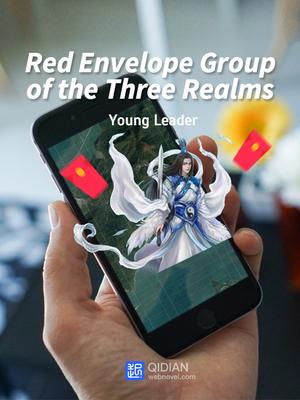
Red Envelope Group of the Three Realms
Chapter 1986 September 1, 2023 -
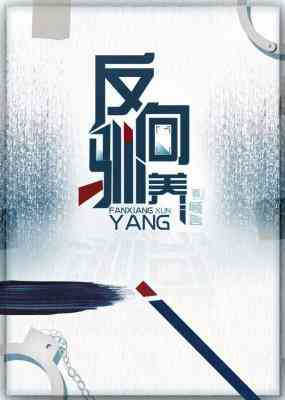
Reverse Domestication
Chapter 39 September 2, 2023 -
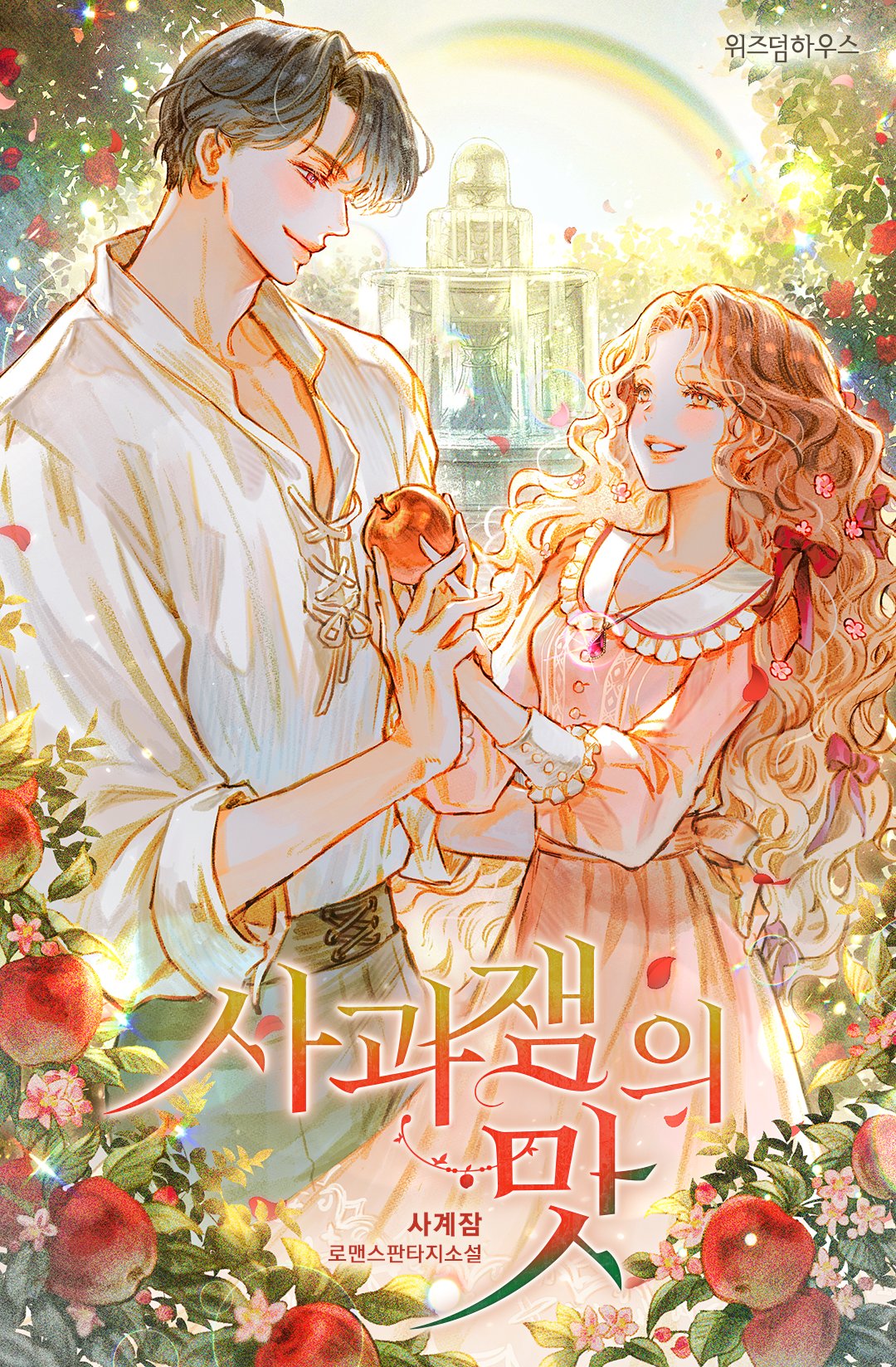
The Taste Of Apple Jam
Chapter 9 August 29, 2023 -

Using Gacha to Increase My Companions and to Create the Strongest Girls’ Army Corps
Chapter 84 August 28, 2023 -
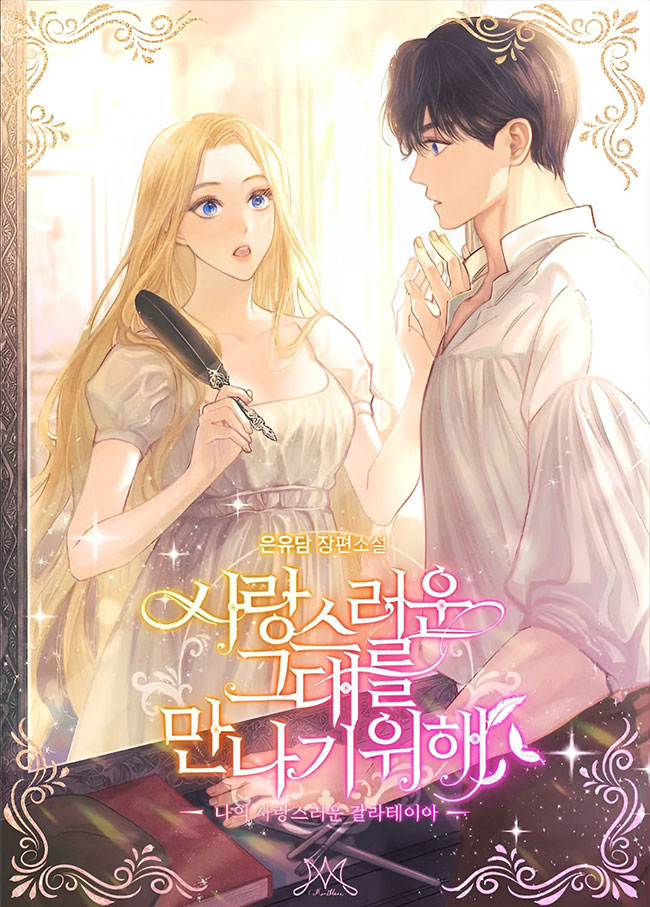
In Order To Meet You, Beloved
Chapter 35 August 28, 2023 -
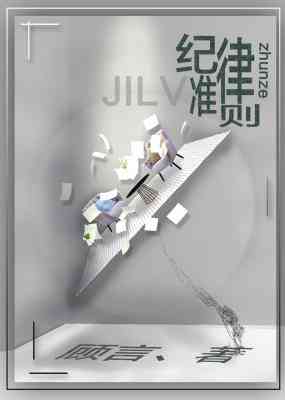
Disciplinary Code
Chapter 65 September 4, 2023 -

The Cat Transformation
Chapter 27 August 26, 2023 -

Chemistry
Chapter 61 August 25, 2023 -

Active JK Idol Seems to be Interested in Me Who is a Free Person.
Chapter 32 August 25, 2023 -
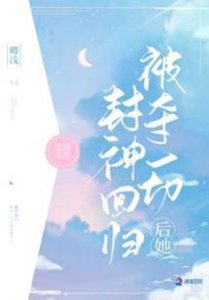
After Being Robbed of Everything, She Returns as a Goddess
Chapter 47 August 25, 2023 -

The Marquis’ Eldest Son’s Lascivious Story
Chapter 232 August 26, 2023
